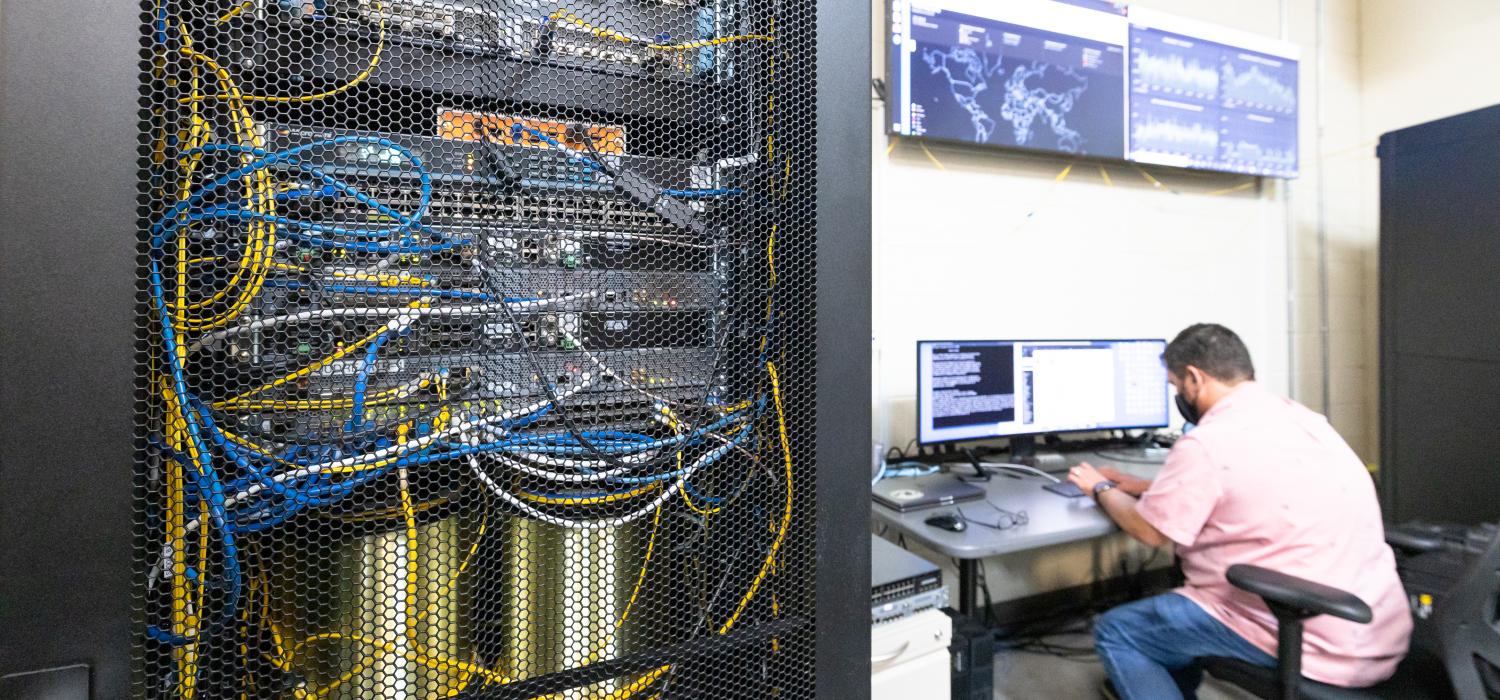The Alternate Timing and Synchronization Lab serves as a test bed for integrated research, development, testing, and evaluation of leading-edge timing, synchronization, and communications capabilities for the energy sector. The lab investigates scalable architectures to support wide-area synchronization, commercial-off-the-shelf technologies to deliver nanosecond-scale precise timing, and secure communications frameworks to provide resilient alternatives to global positioning/global navigation satellite system timing for the nation’s bulk power system.
The lab has partnerships across more than a dozen commercial equipment manufacturers, real and simulated network infrastructures to test and demonstrate feasibility under bespoke utility architectures, and multiple utility partners to demonstrate real-world implementations and impacts.
Uniqueness and capabilities
- Setting baseline timing measurements using multiple clock vendors.
- Using a multi-vendor networking architecture to transport Precision Time Protocol packets in a fast, efficient, and secure manner.
- Utilizing multiple types of networks such as copper, fiber, radio frequency, and two-way satellite time and frequency transfer.
- Partnering with utility companies, power marketing authorities, and other national laboratories to facilitate testing in a variety of environments.
- Configuring a timing solution using a combination of timing sources to provide synchronization to over 1,000 boundary clocks for a more stable terrestrial-based timing system.
Technology resources
- Two rubidium “Grand Master” clocks, one optical cesium clock, and one magnetic cesium clock.
- A timing solution that consists of quartz clocks and satellite modems for researching Two-Way Time Frequency Transfer via satellites between the ORNL timing lab and the National Institute of Standards and Technology (NIST) in Boulder, Colorado, providing comparison with an authoritative time source.

